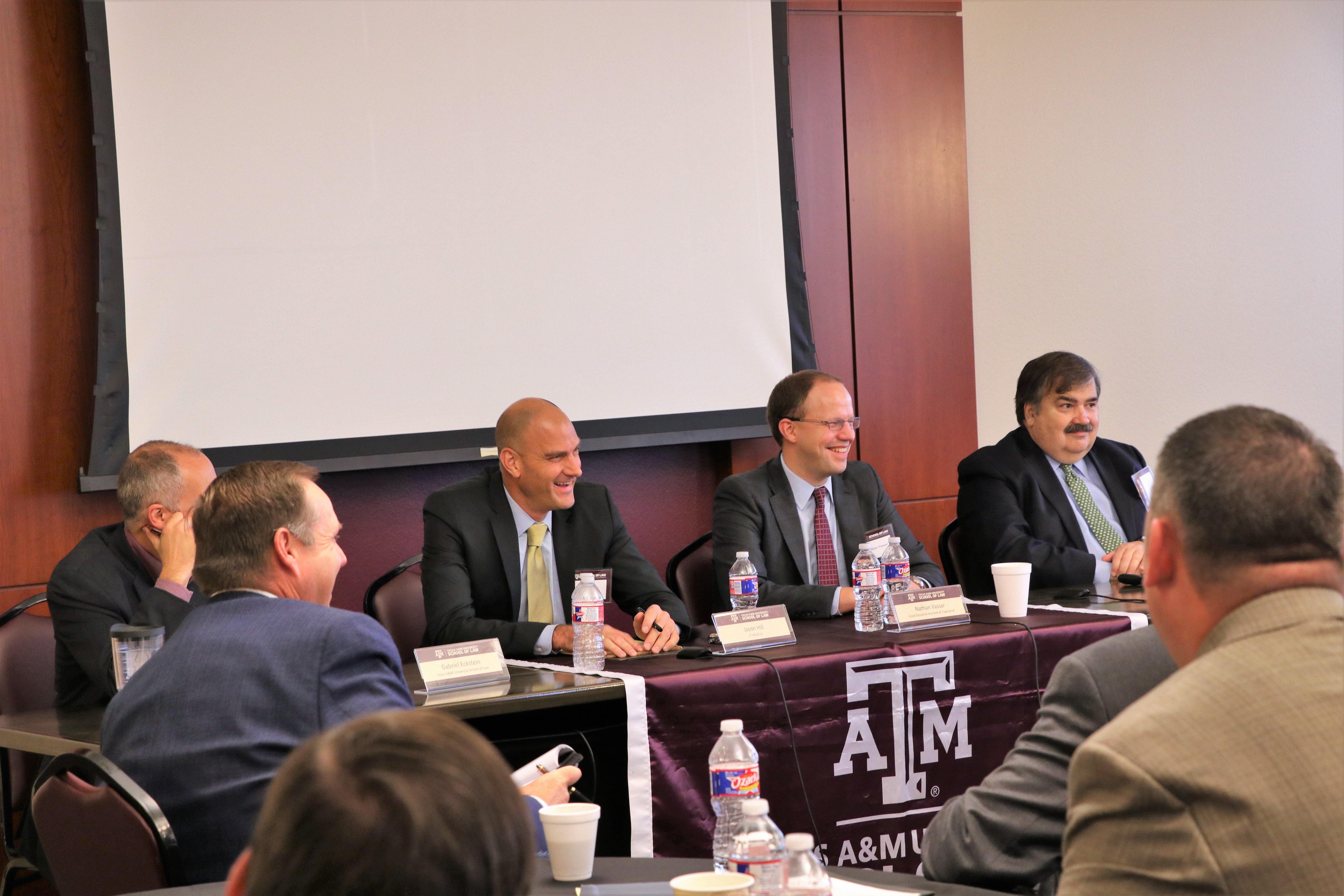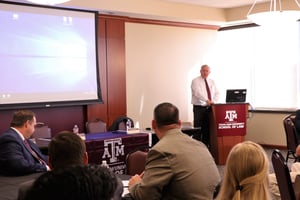 The Texas A&M Journal of Property Law’s annual fall symposium, Rural Development: Using Innovation to Create Thriving Communities, brought together influential scholars from across the country to present their research on barriers to development and solutions to advance and protect rural America.
The Texas A&M Journal of Property Law’s annual fall symposium, Rural Development: Using Innovation to Create Thriving Communities, brought together influential scholars from across the country to present their research on barriers to development and solutions to advance and protect rural America.
 The Symposium began with a presentation by Ed Hargett, Texas State Director of Rural Development and former All Southwest Conference Quarterback from the 1967-1968 Texas A&M football team. Hargett has spent a substantial portion of his career assisting rural communities in development initiatives surrounding wastewater infrastructure, housing grants, and promoting business and industry in rural America.
The Symposium began with a presentation by Ed Hargett, Texas State Director of Rural Development and former All Southwest Conference Quarterback from the 1967-1968 Texas A&M football team. Hargett has spent a substantial portion of his career assisting rural communities in development initiatives surrounding wastewater infrastructure, housing grants, and promoting business and industry in rural America.
The introductory panel discussion, “Agriculture: The Voice and Experience of Rural Farmers,” featured Professor James Chen of Michigan State. Professor Chen used the story of the Imperial Woodpecker to demonstrate how regulatory goals that begin with good intentions ultimately do not always align with everyday needs of farmers.
One broad theme of the day was centered on the impact of decreasing populations in rural America, including how such declines significantly increases labor costs in rural counties. Another common theme was the importance of conserving “open space” through incentives-based, government provided land-conservation and habitat-management programs.
Panelist, Professor Jessica Owley from the University at Buffalo School of Law, cited international examples of programs in Norway and other European countries that recognize farming as an integral part of the nation’s cultural identity. In a subsequent panel discussion devoted to issues affecting natural resource development in rural America, panelists highlighted legal complexities in ground and surface water as well as hydrocarbon and renewable energy development.
The Symposium concluded with a “Fireside Chat” featuring perspectives from local leaders in neighboring rural counties, including the Honorable Jason Brinkley and Honorable Creta Carter II, County Judges of Cooke County and Fannin County, respectively. The Judges highlighted the day-to-day difficulties faced by small communities where major development projects are often highly controversial. The contention is mostly felt amongst county residents, who are often torn ideologically between increased revenue for their county and the preservation of the small town way-of-life.